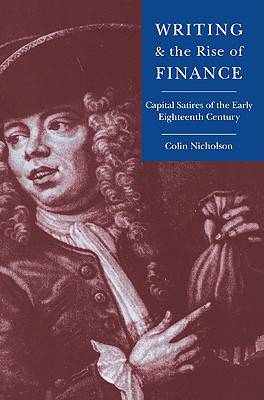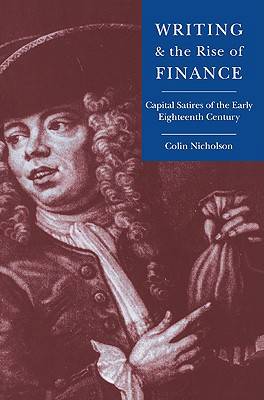
- Afhalen na 1 uur in een winkel met voorraad
- Gratis thuislevering in België vanaf € 30
- Ruim aanbod met 7 miljoen producten
- Afhalen na 1 uur in een winkel met voorraad
- Gratis thuislevering in België vanaf € 30
- Ruim aanbod met 7 miljoen producten
Zoeken
€ 82,45
+ 164 punten
Uitvoering
Omschrijving
The early eighteenth century saw a far-reaching financial revolution in England. In this original study, Colin Nicholson reads familiar texts such as Gulliver's Travels, The Beggar's Opera and The Dunciad as "capital satires," responding to the social and political effects of the installation of capitalist financial institutions in London. While they invested in stocks and shares, Swift, Pope and Gay conducted a campaign against the civic effects of new financial institutions such as the Bank of England and the inauguration of the National Debt. Conflict between these writers' inherited discourse of civic humanism and the transformations being undergone by their own society is shown to have had a profound effect on a number of key literary texts.
Specificaties
Betrokkenen
- Auteur(s):
- Uitgeverij:
Inhoud
- Aantal bladzijden:
- 240
- Taal:
- Engels
- Reeks:
- Reeksnummer:
- nr. 21
Eigenschappen
- Productcode (EAN):
- 9780521604482
- Verschijningsdatum:
- 5/08/2004
- Uitvoering:
- Paperback
- Formaat:
- Trade paperback (VS)
- Afmetingen:
- 152 mm x 229 mm
- Gewicht:
- 358 g

Alleen bij Standaard Boekhandel
+ 164 punten op je klantenkaart van Standaard Boekhandel
Beoordelingen
We publiceren alleen reviews die voldoen aan de voorwaarden voor reviews. Bekijk onze voorwaarden voor reviews.











